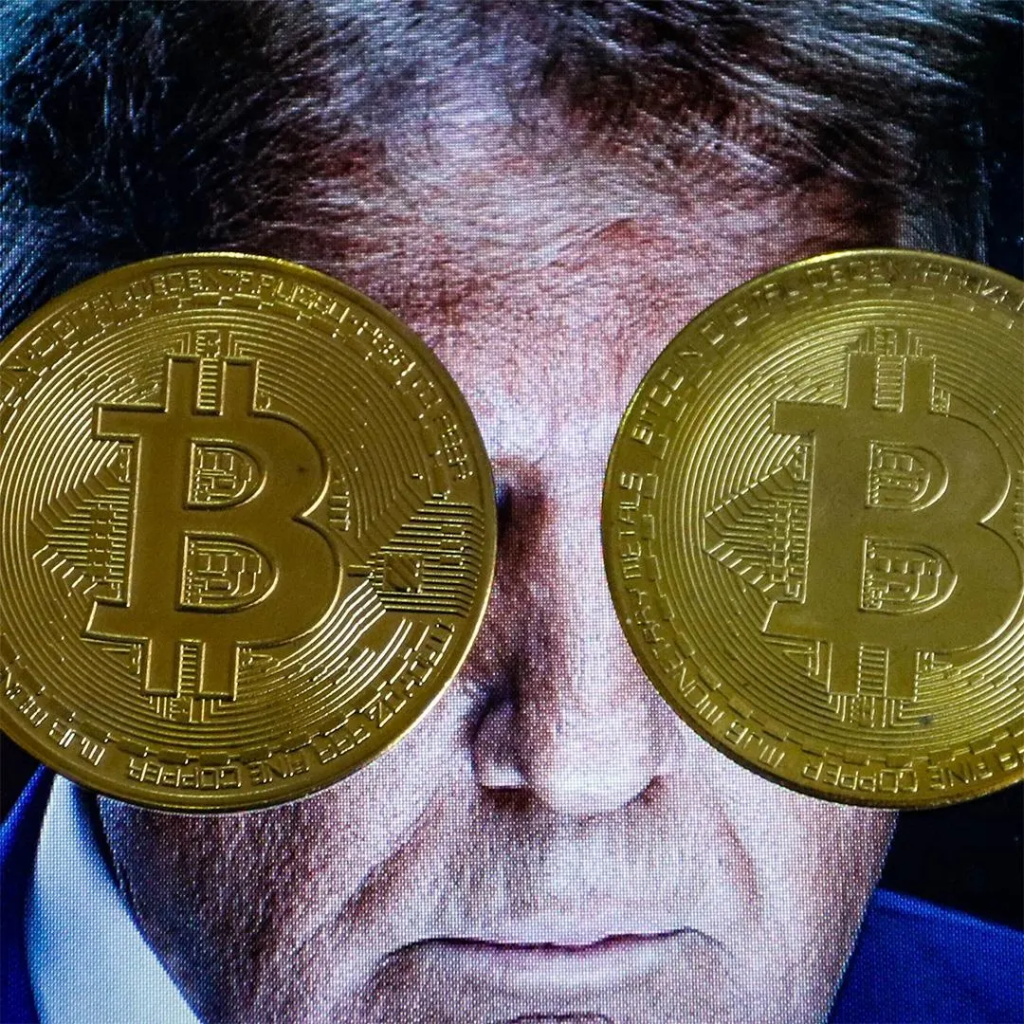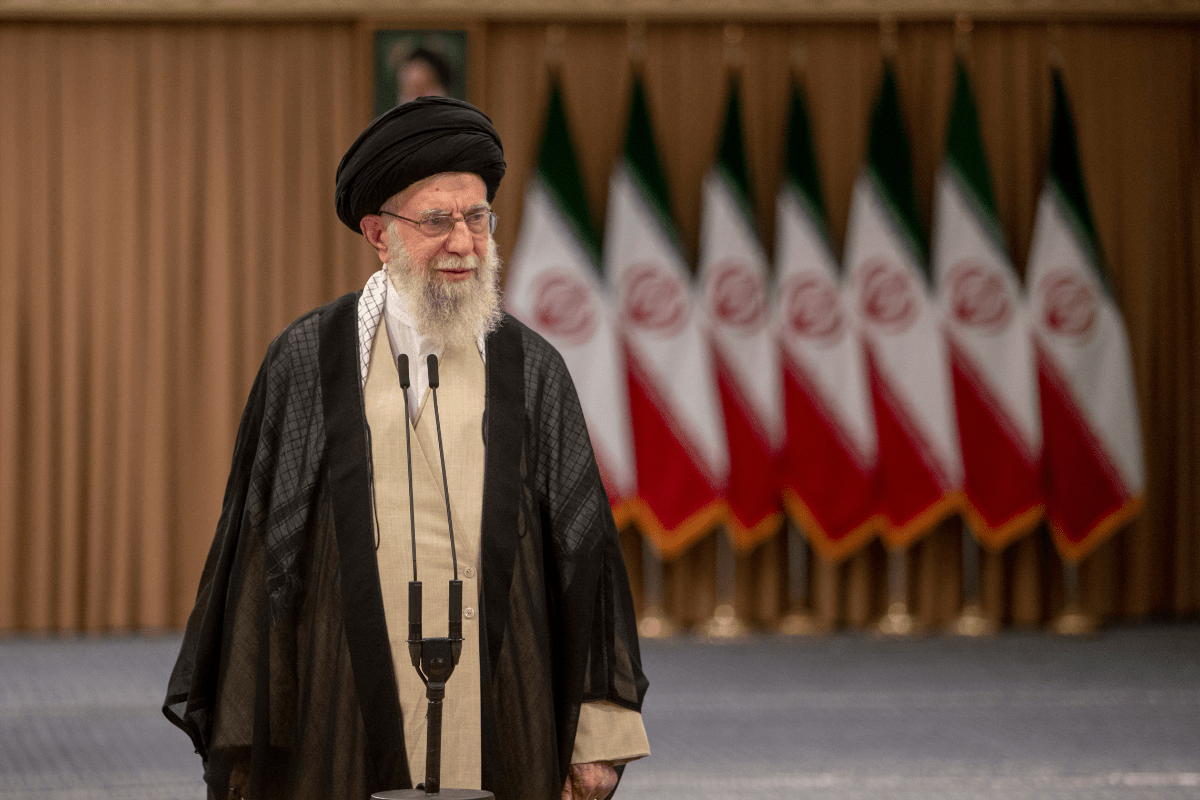It took more than fame for Donald Trump and his sons to build a crypto empire. They got a lot of help from industry insiders, many of whom happened to need a hand from the president.

Shortly after Donald Trump pardoned crypto’s richest man, Changpeng Zhao, the president faced questions about whether his personal financial interests had impacted the decision, given that a May deal involving Zhao’s company helped boost Trump’s net worth by hundreds of millions of dollars. “I don’t know him—I don’t believe I’ve ever met him,” the president said. “He had a lot of support. And they say that what he did is not even a crime.” Never mind that Zhao himself pleaded guilty to failing to maintain an adequate anti-money-laundering program.
Liz Oyer, who oversaw the pardon office at the Department of Justice until March, reached a simple conclusion: “Trump has created a pay-for-play pardon system.” Other crypto investors and companies, facing all sorts of legal issues, seemed to sense an opportunity, too. About a dozen donated to Trump’s political groups, partnered with his crypto ventures and invested in his companies as the administration made decisions on legal matters impacting their businesses. It all left the president in a nice position, with an industry full of people eager to help his family expand its own crypto ventures.
The White House fields so many questions about crypto conflicts of interest that it has developed a set of pre-written responses to send reporters. “Neither the president nor his family have ever engaged, or will ever engage, in conflicts of interest,” Press Secretary Karoline Leavitt declared in one such statement sent Monday afternoon. “Through executive actions, supporting legislation like the GENIUS Act and other common-sense policies, the administration is fulfilling the president’s promise to make the United States the crypto capital of the world by driving innovation and economic opportunity for all Americans.”
It’s easy for Trump’s team to brush aside ethics concerns with Republicans in charge of Congress Trump’s adversaries are already itching to dig into the president’s finances if they regain control of the House in the midterms. “We will use every investigative and legislative tool at our disposal to restore accountability and integrity in government,” says a spokesperson for Democrats on the House Judiciary Committee, who released a report Tuesday on Trump’s crypto connections. “[We] will demand that those involved in this corruption, including those aiding and abetting it, come before this committee to answer questions and turn over documents.”
Such a warning leaves crypto companies in a complicated position. Throwing money at Trump may make life easier for them in the short term—but it also might invite scrutiny down the line. Below, Forbes outlines a handful of Trump-tied individuals and entities that have already attracted attention in the halls of Congress.
Changpeng Zhao
Worth an estimated $79 billion, Changpeng “CZ” Zhao had a rough few years. He started his stint in prison in a cell with a double-murderer, and his crypto exchange Binance had to hand over $4.3 billion to the Justice Department. Seeking redemption, Zhao applied for a pardon this spring. Around the same time, his business ties to Trump strengthened. Employees inside Binance reportedly helped Trump’s crypto venture World Liberty Financial get off the ground. World Liberty cofounder Zach Witkoff said in May that an Abu Dhabi fund planned to invest $2 billion into Binance using a World Liberty stablecoin. Mostly thanks to that deal, Forbes now values the president’s interest in his stablecoin business at $235 million.
Coinbase
The Securities and Exchange Commission filed a suit against Coinbase in 2023, alleging that it acted as an unregistered securities exchange, broker and clearing agency. The firm fought in court, winning a partial victory at the district level, before taking its case to an appeals court. Amid all this, Coinbase donated $1 million to Trump’s inaugural committee. A month after the president took office, the SEC filed to dismiss the suit. Coinbase wrote another check for Trump’s ballroom project, which an executive of the firm admitted was intended to maintain good relations with the White House. Asked last month who he calls for help with crypto concerns, first son Eric Trump name-checked Coinbase’s CEO. “I have so much respect for Brian Armstrong and what he has built,” Eric said, “A great American story. A great American company.”
Crypto.com
In August 2024, the SEC threatened to bring an enforcement action against Crypto.com for operating as an unregistered broker-dealer and clearing agency, setting off a wild chain of events. In October, Crypto.com counterpunched, suing the agency in what it portrayed as a defense of the entire industry. Two months later, with Trump ready to assume the presidency, the firm abruptly dropped its suit. It pitched in $1 million for Trump’s inauguration, and one of the company’s lobbyists served as finance chair. Crypto.com announced a partnership to offer ETFs with the president’s Trump Media and Technology Group in March. Three days later, Crypto.com announced that the SEC had closed its investigation. The partnership deepened over the ensuing months, with Trump Media stockpiling a Crypto.com token and Crypto.com promising to help the company expand into prediction markets. “After years of operating in an environment of regulation by enforcement, we are thrilled to be collaborating with the new administration to develop clear policies and regulations to advance the adoption of digital assets,” a spokesperson for Crypto.com said in a statement. “The investigation was dropped because there was no legitimate case to pursue.”
Donald Wilson
In October 2024, the SEC charged a subsidiary of Chicago-based trading firm DRW Holdings with operating as an unregistered securities dealer. Five months later, with Trump in office, the SEC dismissed its own suit. DRW’s founder, Donald R. Wilson Jr., subsequently became a business partner of the president’s, purchasing $100 million of stock in Trump Media. That deal helped provide financing for a $2 billion bet on bitcoin that transformed Trump Media from a Twitter wannabe into a publicly traded pile of cryptocurrency.
Justin Sun
The SEC charged the Chinese-born billionaire with selling unregistered securities in 2023 with the help of a handful of B-list celebrities. The commission claimed Sun had pumped up crypto tokens through hundreds of thousands of wash sales, making it look like his tokens were attracting significant trading volumes. While still fighting the allegations, Sun loaded up on the Trump family’s crypto projects. He invested $75 million into World Liberty after the election, routing an estimated $39 million to the president and then promised to buy another $100 million of Trump’s memecoin. About a month after the president assumed office, the SEC asked a judge to pause its case against Sun. The crypto tycoon attended a dinner for top holders of Trump’s memecoin at the president’s golf club in May.
Jesse Powell
The Kraken cofounder donated $1 million to Trump in June 2024, shortly after the president began expressing support for the crypto industry. Revealing his donation on X, Powell took aim at former SEC Chair Gary Gensler, whose agency had levied a set of familiar allegations against Kraken—that it was operating as an unregistered securities exchange, broker, dealer and clearing agency. Powell’s post concluded with a wish-list item: “#freeross,” a reference to Ross Ulbricht, the Silk Road mastermind sentenced to life in prison for operating a crypto-powered marketplace for drugs, guns and other illicit products. Trump gave Ulbricht the first pardon of his second term, setting him free a day after returning to office. The SEC filed to dismiss its suit against Kraken two months later. In a statement, a spokesperson for Kraken suggested the company was willing to throw money at candidates of either party: “Crypto is a nonpartisan issue.”
Ripple
There may be no company that has experienced greater whiplash as Trump reversed his position on cryptocurrency than Ripple. In December 2020, it was Trump’s SEC that initially went after the company, alleging that it sold digital assets as unregistered securities to investors. Ripple, which once leased office space in one of Trump’s buildings, poured $5 million into the president’s inaugural fund. In August, the Trump administration dismissed its own appeal in the case, though Ripple still had to pay a $125 million fine.
Robinhood
The SEC indicated to Robinhood in May 2024 that it planned to take enforcement action because of the platform’s cryptocurrency listings. Robinhood handed over $2 million to support Trump’s inauguration. “I haven’t been shy about expressing my disappointment and general sense that the [Biden] administration and the SEC has been headed in the wrong direction—rampant regulation by enforcement, open warfare against the cryptocurrency industry in America,” Robinhood CEO Vlad Tenev said on Fox Business. A month after the president took office, the SEC told Robinhood the investigation had closed. Shares of Robinhood are up more than 300% since Trump won the election. A spokesperson for the company said it did not believe there was a connection between the inaugural donation and the SEC’s decision.
Roger Ver
In February 2024, the Justice Department accused Ver, also known as “Bitcoin Jesus,” of mail fraud, tax evasion and filing a false tax return. Almost a year later, Ver posted a video saying he could be extradited from Spain at any moment and sent to prison for up to 109 years. “Please Donald Trump,” he begged in the video, tagging the president on X, “I need your help.” Ver also sought assistance from Trump allies, hiring Roger Stone as a lobbyist for $600,000. The Justice Department announced last month that Ver had admitted to dodging $17 million of taxes from bitcoin sales and agreed to pay $50 million as part of a deal structured to spare him from criminal prosecution. His X profile now features a banner advocating for a presidential pardon.
Uniswap
Uniswap helps crypto investors to trade assets without using a traditional exchange. But the SEC seemed to think it was really just an unregistered exchange, signaling a looming enforcement action in April 2024. The Commodity Futures Trading Commission, meanwhile, determined that Uniswap inappropriately acted like a board of trade, fining it $175,000. When Trump won the election, Uniswap founder Hayden Adams donated $246,000 to the president-elect’s inaugural committee. Trump picked a CFTC commissioner who dissented on the Uniswap case to head the commission. “She’ll be a great leader,” Adams declared on the day of the inauguration, which he apparently attended. The SEC closed its investigation into Uniswap a month into Trump’s second term. “This was a donation to an inauguration committee—not a candidate, not a political party, not a PAC,” said a spokesperson for Uniswap, rejecting any suggestion of a connection between the gift and the SEC’s decision. “Like countless American business leaders across industries, his donation was about attending the event.”
Yuga Labs
The SEC also launched an investigation into Yuga Labs, the company whose Bored Ape NFTs took off in 2021. A key issue was whether NFTs, which Trump sold during his years out of office, qualified as securities. Yuga donated $100,000 to Trump’s inaugural committee. Less than two months into the president’s second term, Yuga took to X to announce a sudden change of fortune: “After 3+ years, the SEC officially closed its investigation into Yuga Labs,” the company said in a post. “This is a huge win for NFTs and all creators pushing our ecosystem forward.”
Look back on the week that was with hand-picked articles from Australia and around the world. Sign up to the Forbes Australia newsletter here or become a member here.


